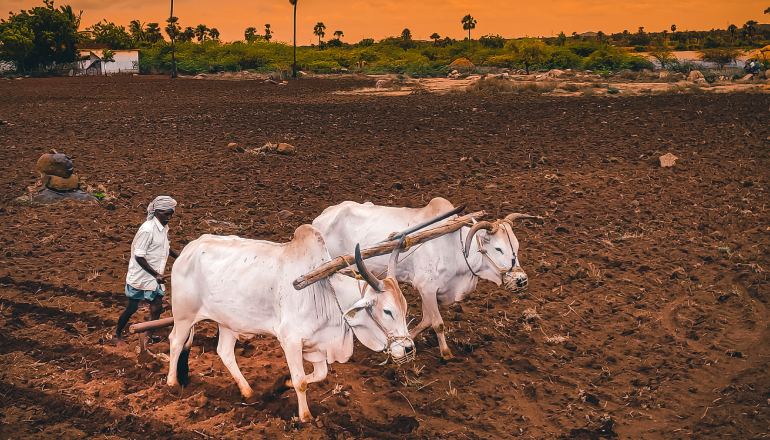I grew up listening to stories of hardships my grandparents, parents and others in their generation faced for food during World War II, especially in 1943-44.
What was more inspiring was their narratives for survival. Each tale resonated with changing times and changing patterns of cultivation. I vividly recall my father speaking about how the community protected the local produce. Moreover, they also adapted to the new changes and added a newer variety of crops to the farm.
Like them, many framers across the country swiftly learned how to produce more regional indigenous crops, including millets. The milk co-operative movement (Amul) led by Mr Verghese Kurien in Gujarat and the Green Revolution led by Dr MS Swaminathan with the support of favourable policies enabled India to walk the long path to self-sufficiency.
Cut to today. According to the UN, India’s announcement to prohibit rice exports can trigger a global food crisis. The numbers say it all: India stands tall as the world’s largest rice exporter, accounting for 40% of international trade by volume — 22m tonnes. The country exported rice to more than 140 countries in 2022. That is a testimony that Indians have mastered the art of food security in the past 7 to 8 decades.
All the same, the global picture, including in India, is gloomy. The hard reality is that one-third of the total food produced globally is wasted, according to the United Nations data. Food waste is in multilayers, starting from waste during harvesting.
Significant reasons for food waste:

Turning the green tide
- Disconnect between the end customer and producer resulting in overproduction
- Procurement hurdles
- Insufficient storage
- Inefficient packing
- Cool chain inadequacy
- Wastage during transportation
- Inefficient supply chain
- Gaps in last-mile delivery
Additionally, three more factors contribute to the waste. These are:
- Unplanned hoarding
- Wastage during cooking
- Delay in consumption
As per a report released by Economist Impact and supported by Corteva Agriscience, titled ‘Global Food Security Index,’ India ranked 68th out of 113 countries in 2022; in Asia-Pacific, it ranked 14th among 23 countries. “Its performance across all the index’s four pillars is generally consistent, but its score on the availability pillar—62.3—is the highest. The country’s weakest performance is in the Sustainability and Adaptation pillar, in which the country scored 51.2. India’s performance suggests that the food security environment in the country is particularly under threat from climate-change risks. The country needs to better manage these negative impacts on its food security by improving political commitment to adaptation, managing eutrophication in its oceans, rivers and lakes; and addressing the risks associated with the quality and quantity of water available for agriculture.”
As per an earlier report published by the United Nations Environment Programme ‘Food Waste Index Report 2021’, 50 kg of food is thrown away per person every year in Indian homes annually.
Wasted food has far-reaching effects, both nationally and globally. It adds to the landfill, no doubt. It is the most significant component of the municipal waste anywhere in the world. 95% of discarded food or waste reaches landfills. The numbers are alarming for the US as well. Up to 40% of all food produced in the US goes uneaten.
How can we reduce food waste?
Perishables contribute a higher percentage in the food value chain. And it is imperative that the focus has to be on the supply chain to reduce food wastage. The maximum wastage, as per different studies, is during transportation. Which, if tackled, can tremendously bring down the wasted food percentage at the global level.

